
MUSIC
Music is integral to the life of our school, giving pupils skills and experiences that last them for the rest of their lives. Our aim is to enable every pupil to experience the best and widest range of music-making, whether as a performer or listener. We approach this by sharing a love of music across the school, and by inspiring pupils to achieve - for themselves - the highest possible standards. Distinguished musicians who have worked at the school include Thomas Weelkes, Jeremiah Clarke, SS Wesley, Sir George Dyson and many others.
Beyond music as a curriculum subject, we encourage extra-curricular participation for every pupil who is interested and able. Two thirds of the pupils learn an instrument, while many learn two or three. From the Glee Club to the Quiristers, and with a lively calendar of concerts and performances, we cater for the widest possible range of tastes, expectations and experience. The diverse range of places where pupils can make music, practise, listen to and compose it, makes Winchester very special indeed.
“I’ve found that music at Winchester doesn’t dominate your life, but it can take as much time as you want - there’s so much to do.”
Performances
Concerts take place regularly. All pupils are given the opportunity to perform, whether as part of one of the elite ensembles or in an informal concert, House choir or Glee Club. The school is also active in commissioning and performing new music for our choirs and instrumental ensembles.
Operas and musicals, often involving large casts and professional soloists, are staged in New Hall, the Queen Elizabeth II Theatre or the Theatre Royal in Winchester. Some of our musical theatre is produced and directed with great success entirely by the pupils. Through our Community Outreach programmes, pupils work with the Blue Apple Theatre Company and entertain various residential homes with songs and sketches.
PERFORMANCE SPACES & FACILITIES
Our Music School offers excellent facilities for making music, with a large rehearsal and concert hall. The standards of equipment and performance spaces, plus the overriding ethos, are such that pupils who have never sung or played an instrument are inspired to give it a try.
We have fifty teaching and practice rooms, as well as a fully-equipped music technology classroom, recording studio, editing suite, percussion studio and rock room. New Hall, which was extensively refurbished in 2014, provides an outstanding performance space, with seating for 400, excellent backstage facilities and first-rate acoustics. Alternatively, the College Chapel provides an inspirational venue for choral and instrumental music.
“You can walk into a hall with, say, 40 other people and rehearse a whole concerto - it’s just unusual to be able to do that in a school.”
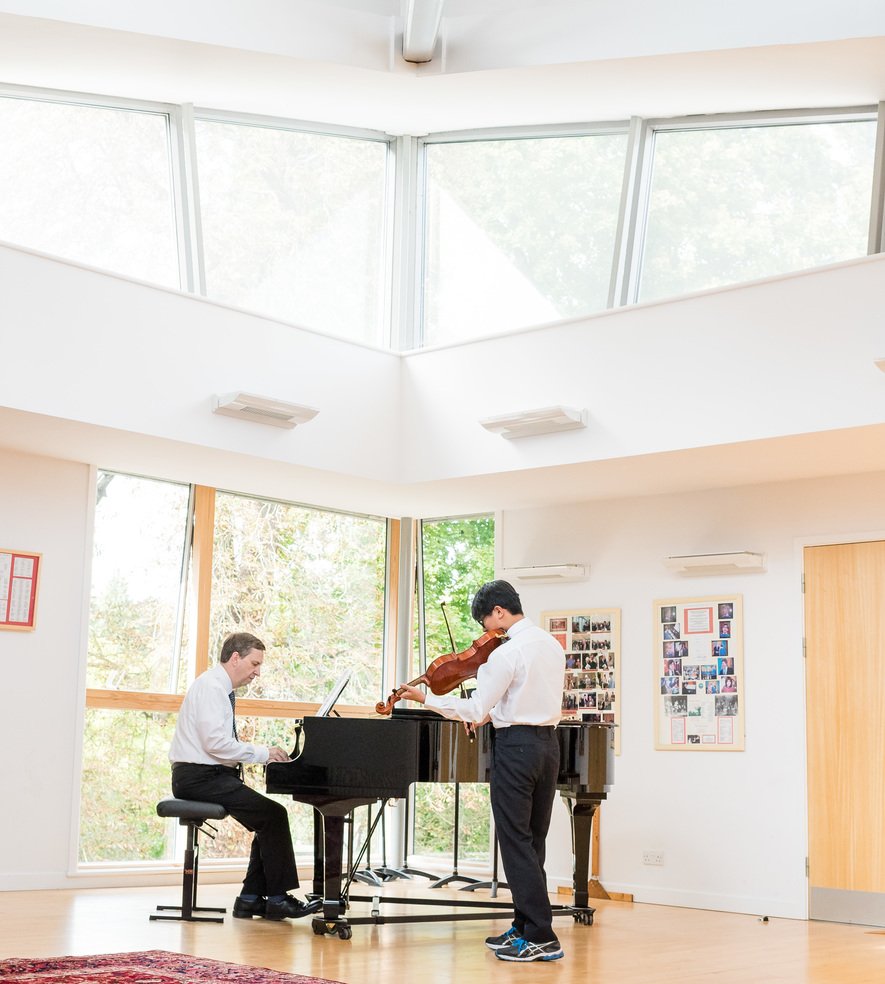
MUSICAL TUITION
The Music department consists of six full-time staff and over fifty specialist peripatetic tutors who teach over seven hundred individual instrumental lessons each week. Pupils can specialise in all orchestral instruments and many others, including piano, organ, voice, harp, recorder, guitar (bass, electric, acoustic and classical), and bagpipes.
“The music teachers are really special because, although you only meet once or twice a week, in those forty minutes you create a really good relationship. Because they are all practical musicians as well, that’s a great advantage.”
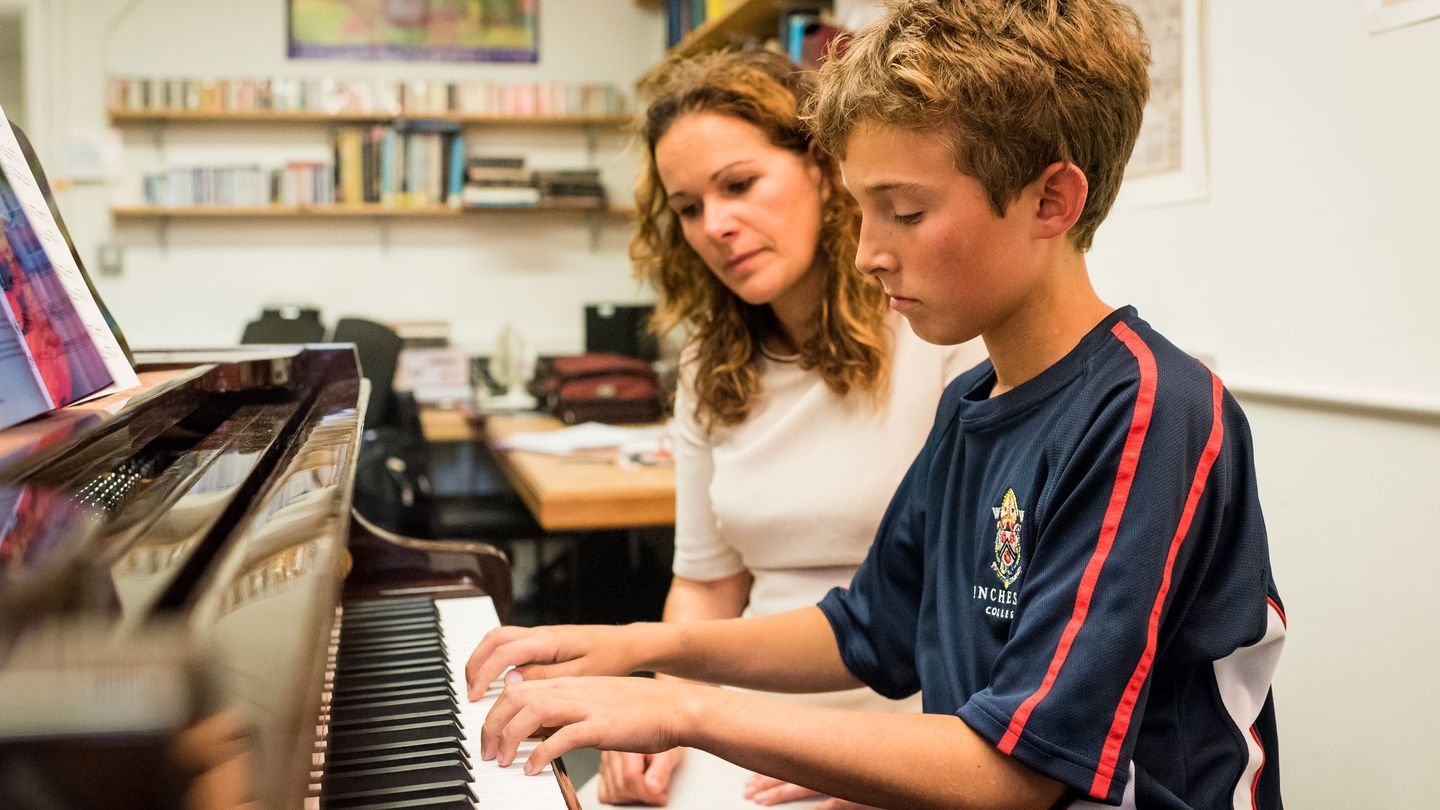
ACADEMIC STUDIES
Music as an academic subject is an option for all pupils in their first year. Talented musicians elect to take the GCSE and A Level courses, many with the aim of reading Music at Oxbridge.
“Before coming here, learning an instrument was a chore. My parents had to make me practise every day and I really didn’t enjoy it. But then when I came here, the teachers have been really enthusiastic and basically taught me to enjoy music. It’s quite magical really.”
SCHOLARSHIPS
We offer Music Scholarships and Exhibitions to pupils who show promise and are keen to contribute to the musical life of the school. Currently, over sixty Music Scholars and Music Exhibitioners attend the school. Ex-cathedral and collegiate choristers are particularly welcome, and parents are encouraged to contact the Master of Music in advance of application.
CHOIRS
We have a choral tradition that was started 600 years ago; we are the only school to maintain this in its original form.
The Chapel Choir is the school’s most prestigious musical ensemble, performing in the chapel throughout the year. The Glee Club (the school’s Choral Society) is made up of around 100 pupils, parents and staff. It gives two concerts annually, with repertoire including Mozart's Requiem and Haydn's Creation. Four other choirs and vocal groups give all pupils the opportunity to sing an eclectic mix of both sacred and secular music.
Quiristers
Some pupils start their musical journey at Winchester with the Quiristers; and are an integral part of Chapel Choir.
Quiristers receive generous scholarships to study as weekly or full boarders at The Pilgrims’ School, a thriving boys-only prep school located next to the College. They also receive free instrumental tuition and vocal training.
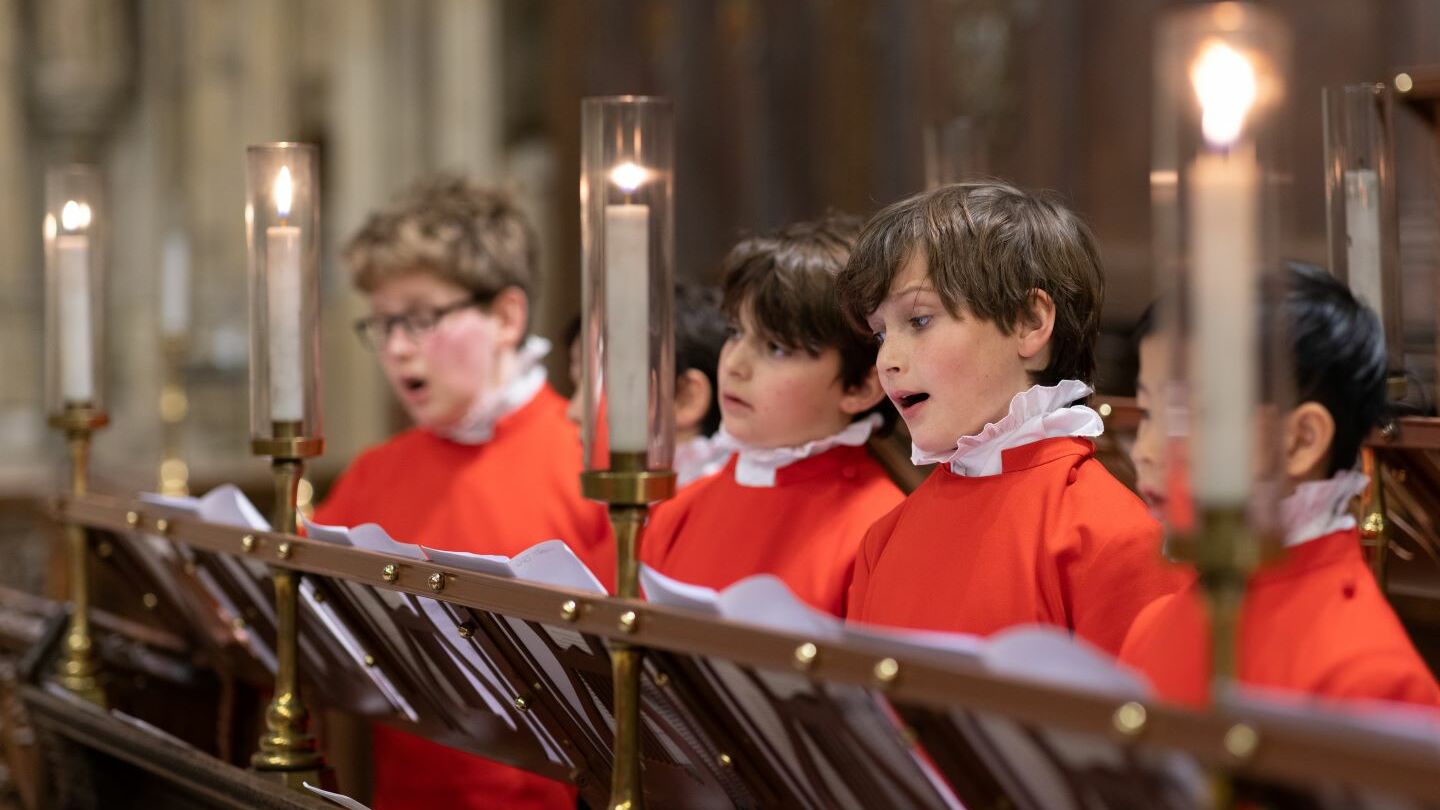
ENSEMBLES
A large number of pupils at Winchester play orchestral instruments, and there are plenty of opportunities to perform in ensembles. Pupils meet informally to play together in varying compositional groups and styles, from string quartets to bagpipes.
Ensembles available to pupils include Symphony Orchestra, Chamber Orchestra, Wind Orchestra, Academy Strings, Jazz Orchestra, Junior and Senior Rock Bands, and the Baroque Players, as well as various smaller chamber music ensembles to include as many ages and abilities as possible.
The Symphony Orchestra performs major works including symphonies and concertos by Brahms, Tchaikovsky, Sibelius, Rachmaninoff and Prokofiev, with our pupils as soloists.
“It helped me in the first year, because playing in this quartet meant I could instantly bond with other people.”
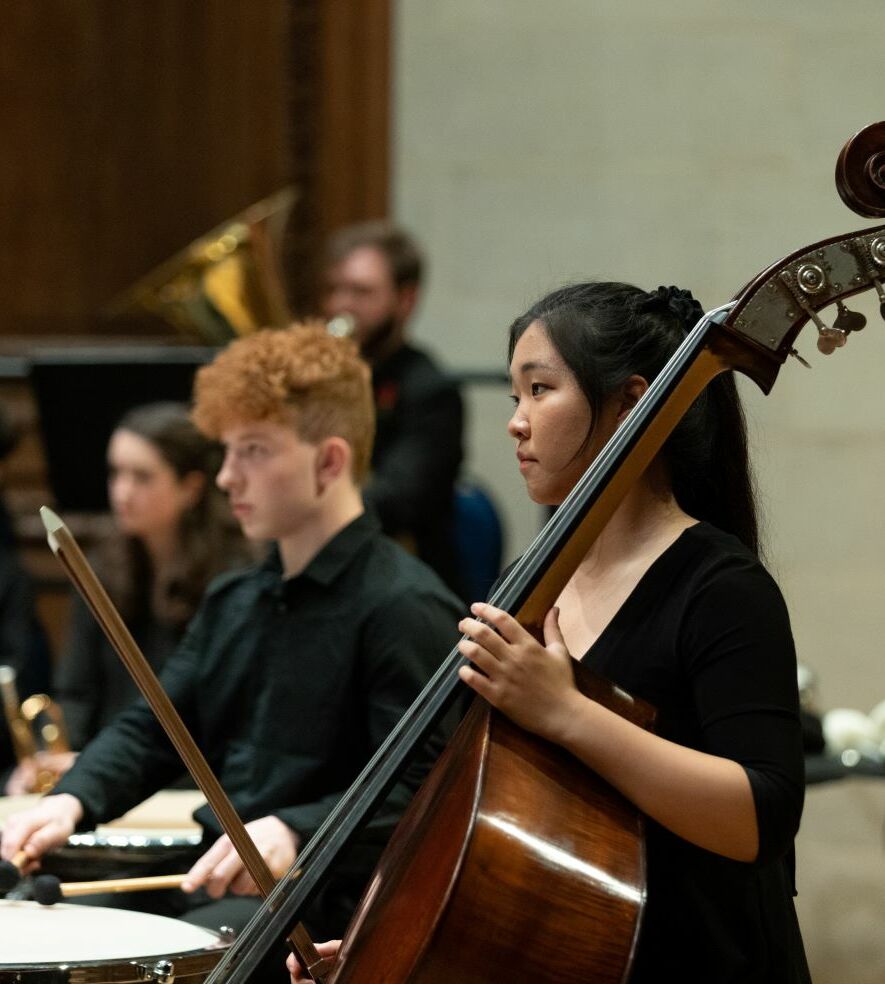
VISITING ARTISTS
Pupils can participate in workshops and concerts given each year by visiting artists. Recent visitors have included Mitsuko Uchida, the Škampa Quartet, the Doric Quartet, James Gilchrist, Ashley Riches, Adrian Brendel, Fretwork, Stile Antico and The King's Singers. Masterclasses have been given by Charles Owen, Angela Hewitt, Felix Andrievsky and Colin Lawson.
Many of the school's concerts are open to members of the public, some of them free of charge.
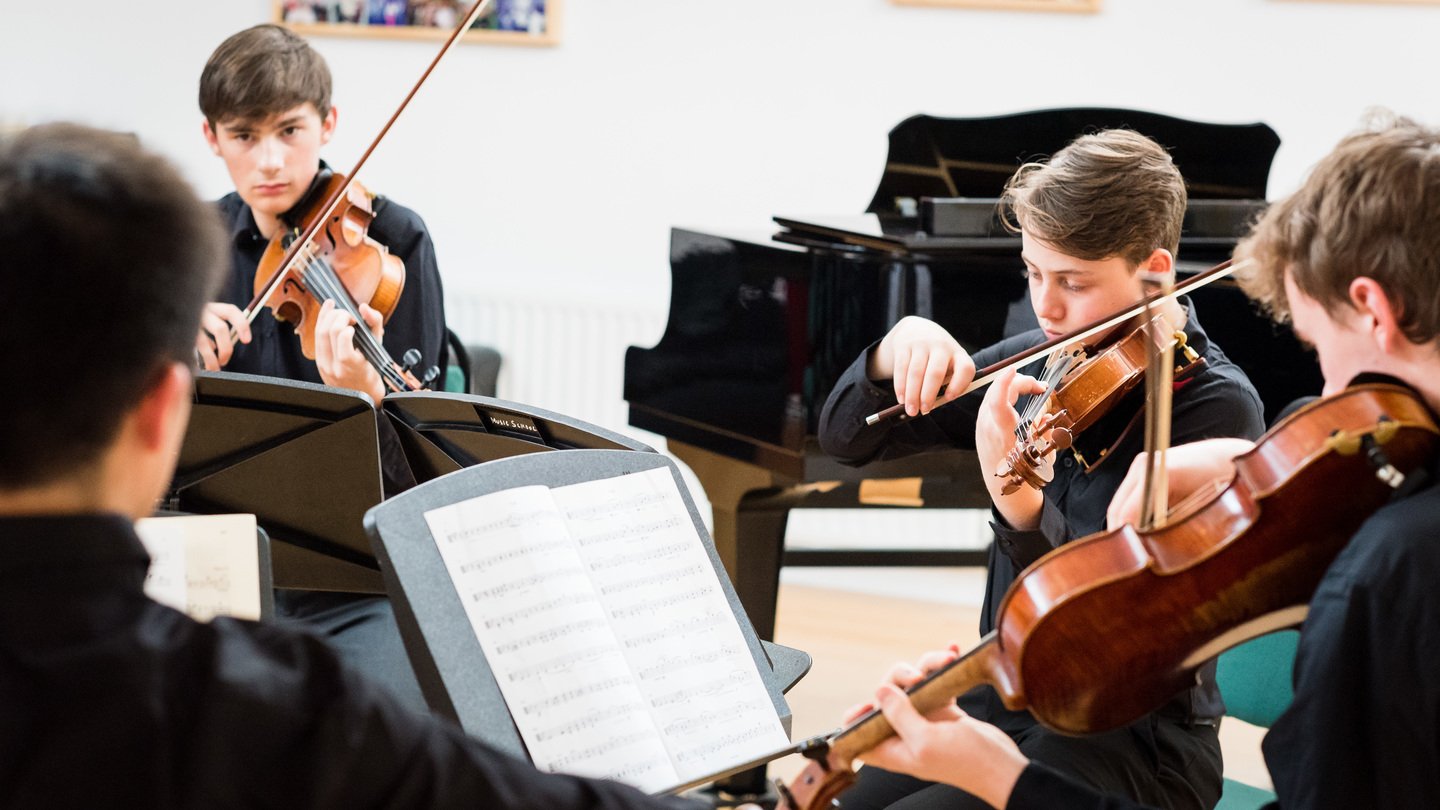
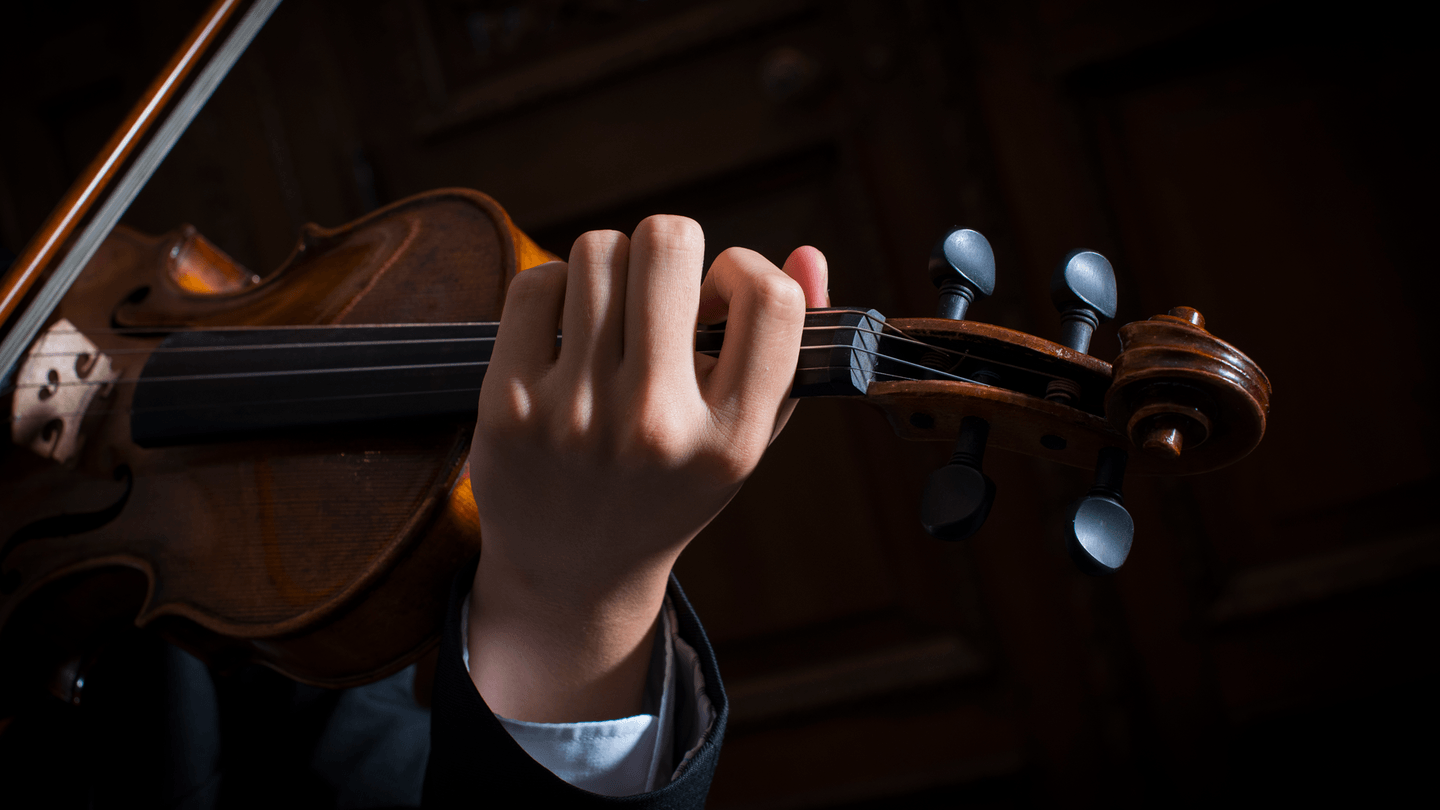
“I have been encouraged to perform my own works, and also write stuff for professional musicians. It’s a hands-on department”


 Back to Learning
Back to Learning